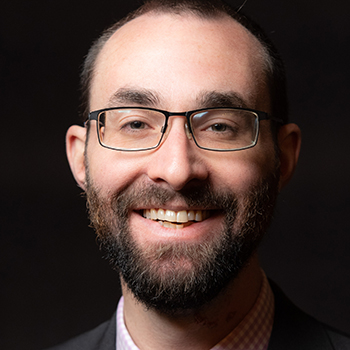Grassroots Victory: A Legal Win Against Plutonium Pit Production
In late September, a federal judge ruled that the US government’s expansive plans to produce new plutonium pits for nuclear weapons violated the National Environmental Policy Act (NEPA).

February 7, 2025
Victories in the nuclear policy world are rarely immediate. As the largest public foundation in the US focused solely on reducing the threat of nuclear weapons, we know patience is paramount. Ploughshares’ grants often have long-term effects.
In late September, a federal judge ruled that the US government’s expansive plans to produce new plutonium pits for nuclear weapons violated the National Environmental Policy Act (NEPA). The ruling was the result of a lawsuit filed by a grassroots coalition of four groups: Tri-Valley Communities Against a Radioactive Environment (Tri-Valley CAREs), Nuclear Watch New Mexico (NukeWatch), Savannah River Site Watch, and the Gullah/Geechee Sea Island Coalition. Tri-Valley CAREs and NukeWatch are both longtime Ploughshares grantees, and we proudly helped kickstart the coalition’s legal case with a grant in 2020.
A plutonium pit or bomb core is the trigger of a nuclear weapon – and the US has set the ambitious goal of producing 80 of them per year. That would be a significant expansion from current levels since only one new pit has been produced as of October 2024. Reaching the full goal will require manufacturing pits at two separate facilities, including one in South Carolina that has never done it before. There are serious risks involved in ramping up production of fissile bomb cores without proper facilities or thorough investigation of possible hazards. This is especially true since production is set to occur in populated areas where residents and policymakers are likely unaware of the dangers.
The coalition’s victory is back in the news because on January 17 the two sides reached a settlement outlining the process by which the federal government will comply with the law. The government must now produce a nationwide “programmatic environmental impact statement” that studies the effects of plutonium pit production on affected communities and evaluates alternatives to current plans.
This is a big deal. The National Nuclear Security Administration (NNSA), the federal body that oversees nuclear warheads, tried to undertake pit production without truly investigating the environmental consequences, without fully exploring alternatives, and without consulting Americans impacted by the plans. As advocates of expanding the Radiation Exposure Compensation Act know well, the US has a long history of subjecting its own citizens to nuclear harms. Expansive pit production risks continuing this toxic legacy, but thankfully the coalition—which includes the Gullah Geechee people, who would be directly affected—is holding the government accountable.
The legal ruling will bring public oversight to a process that administrations from both parties hoped to keep quiet. NNSA will have to reckon with democracy in action.
The settlement requires two rounds of public hearings: one before and one after the drafting of the environmental impact statement. The hearings will take place in locations across the country: Livermore, CA; Santa Fe or Los Alamos, NM; Kansas City, MO; Aiken, SC; and Washington, DC. They will provide opportunities for the public to inform the study and voice concerns about nuclear weapons production in their communities. This is an organizing opportunity that simply did not exist before the ruling. The grassroots coalition not only fought the federal government and won, it changed political conditions to allow more pushback against dangerous nuclear policies and programs coming out of Washington. As Jay Coghlan of NukeWatch says, “We plaintiffs will work hard to transform this legal victory into nothing less than a public referendum on the new nuclear arms race that threatens all of humanity.”
There is work to be done. Changed political conditions do not ensure political change. In the days and months ahead, experts and advocates from the Ploughshares community and beyond will coordinate efforts to publicize the hearings and encourage residents to speak up.
